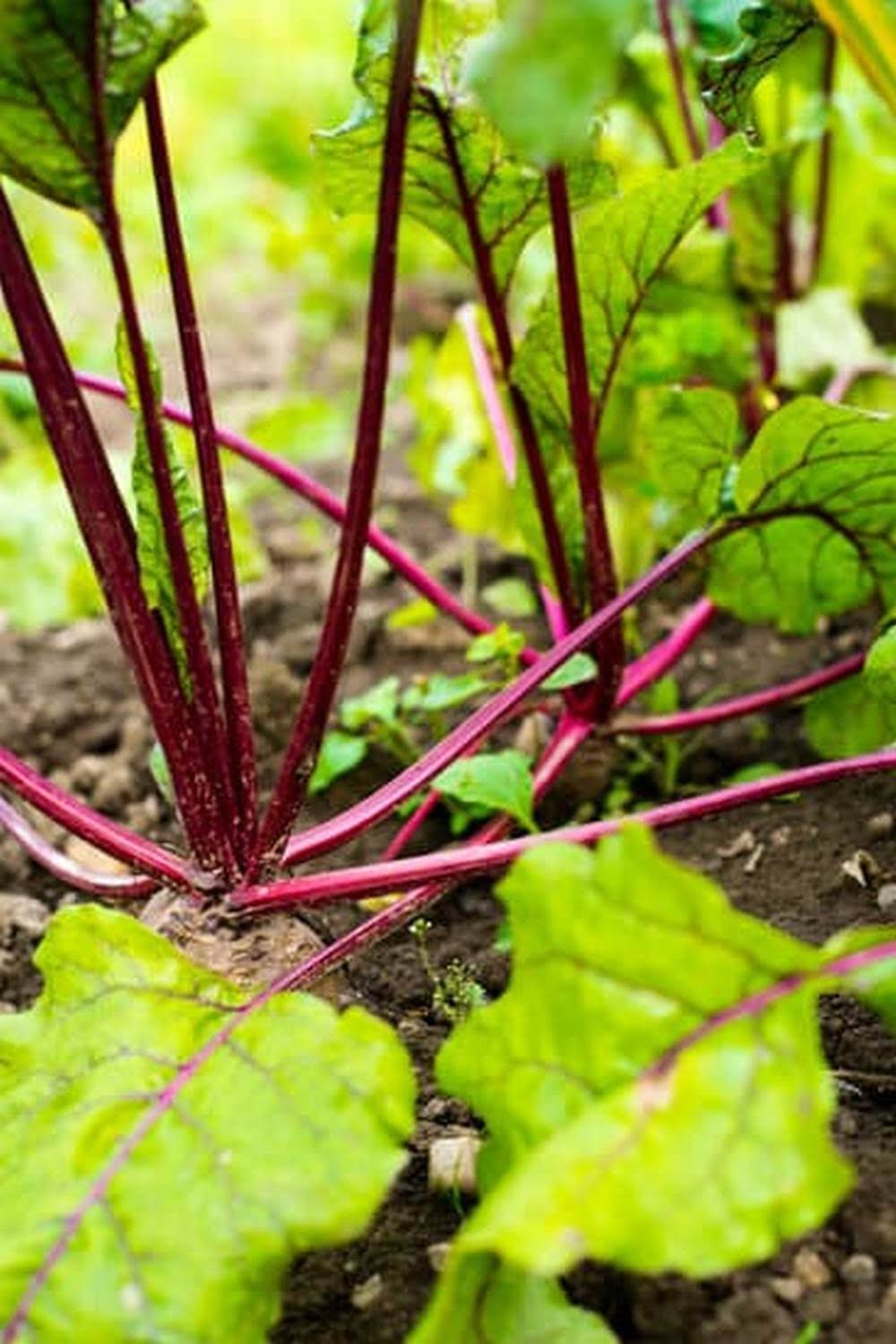Hydroponic vegetable gardening nutrients play a crucial role in the success of your indoor garden. Hydroponic systems have gained popularity among urban gardeners and enthusiasts for their ability to grow plants without soil, using nutrient-rich water solutions instead. This innovative method allows for more control over plant growth and health, making it essential to understand the types and importance of nutrients needed for hydroponic vegetable gardening.
One of the primary benefits of hydroponic gardening is the efficient use of nutrients. Unlike traditional soil-based gardening, where nutrients can be easily depleted or inaccessible to plants, hydroponic systems provide a direct route for plants to absorb essential elements. By optimizing the nutrient solution used in your hydroponic setup, you can promote healthy root development, vigorous growth, and high yields of vegetables.
To ensure your hydroponic vegetables thrive, it’s essential to understand the different types of nutrients required by plants. From macronutrients like nitrogen, phosphorus, and potassium to micronutrients such as iron, manganese, and zinc, each plays a vital role in plant growth and development. By incorporating a well-balanced nutrient solution tailored to your specific crop’s needs, you can maximize the potential of your hydroponic garden and enjoy fresh produce year-round.
Benefits of Hydroponic Gardening
Hydroponic gardening is a method of growing plants without the use of soil, utilizing nutrient-rich water as the medium instead. One of the key benefits of hydroponic gardening is the efficient use of resources. Unlike traditional soil-based gardening, hydroponic systems can reduce water usage by up to 90%.
This is because water in a hydroponic system is recirculated and reused, minimizing waste and promoting sustainability. Additionally, hydroponic systems also require less space than conventional gardens, making them ideal for urban dwellers or those with limited outdoor space.
Another advantage of hydroponic gardening is the ability to control and optimize nutrient delivery to plants. In traditional soil-based gardening, plants may not always have access to all the essential nutrients they need for optimal growth.
However, in a hydroponic system, growers can tailor the nutrient solution to meet the specific needs of their plants at each stage of growth. By providing precise amounts of essential nutrients such as nitrogen, phosphorus, potassium, and micronutrients like iron and calcium, plants can thrive and produce high yields in a controlled environment.
Furthermore, hydroponic vegetable gardening allows for faster plant growth and higher yields compared to traditional methods. With optimal nutrient levels readily available to plants in a hydroponic system, they can focus their energy on growth rather than searching for nutrients in soil. This results in healthier plants that mature more quickly and produce more abundant harvests.
Additionally, by eliminating pests and diseases associated with soil-based cultivation, hydroponic gardening reduces the need for chemical pesticides or herbicides, resulting in cleaner produce that’s free from harmful residues. By incorporating the right balance of hydroponic vegetable gardening nutrients into your growing system, you can unlock these benefits and enjoy a bountiful harvest year-round.
- Efficient use of resources
- Control over nutrient delivery
- Faster plant growth and higher yields
Types of Nutrients Needed for Hydroponic Vegetable Gardening
Hydroponic vegetable gardening relies on the use of specific nutrients to ensure that plants grow healthy and produce bountiful harvests. In a hydroponic system, plants receive all their essential nutrients directly from the water in which they are growing, making it crucial to provide a well-balanced nutrient solution.
The main nutrients required for successful hydroponic vegetable gardening are nitrogen, phosphorus, potassium, calcium, magnesium, and sulfur. Additionally, micronutrients such as iron, manganese, zinc, copper, boron, and molybdenum are also necessary in small quantities for proper plant growth.
Properly understanding the types of nutrients needed for hydroponic systems is key to maximizing plant growth and productivity. Nitrogen is essential for leafy green growth and overall plant development. Phosphorus aids in root development and flower production. Potassium helps with the overall structure of plants by strengthening cell walls.
Calcium contributes to correct cell function and structure while magnesium plays a crucial role in chlorophyll production. Sulfur assists in enzyme production and synthesis of amino acids. Micronutrients like iron are essential for photosynthesis while zinc helps with enzyme production.
It is important for hydroponic gardeners to regularly monitor nutrient levels in their system to ensure that plants are receiving adequate nourishment. Nutrient deficiencies can manifest in various ways such as yellowing leaves or stunted growth. By providing the right combination of nutrients at the appropriate levels, hydroponic gardeners can achieve optimal plant health and maximize yields in their gardens.
| Nutrient | Role |
|---|---|
| Nitrogen | Leafy green growth |
| Phosphorus | Root development and flower production |
| Potassium | Strengthening cell walls |
Importance of Nutrients in Hydroponic Systems
Nutrients play a crucial role in hydroponic systems as they are the key elements required for plant growth and development. In traditional soil-based gardening, plants can access nutrients from the soil, but in hydroponic systems, these essential elements must be provided directly to the roots through the nutrient solution. Without a balanced supply of hydroponic vegetable gardening nutrients, plants will not be able to thrive and produce healthy yields.
To ensure that your hydroponic plants receive all the necessary nutrients for optimal growth, it is essential to understand the role of each nutrient and how it affects plant health. Some of the primary nutrients required by plants include nitrogen (N), phosphorus (P), potassium (K), calcium (Ca), magnesium (Mg), and sulfur (S). Additionally, micronutrients such as iron (Fe), manganese (Mn), zinc (Zn), copper (Cu), boron (B), molybdenum (Mo), and chlorine (Cl) are also essential for proper plant growth.
In a hydroponic system, plants rely entirely on the grower to provide them with a suitable nutrient solution that contains all the essential elements in the right proportions. It is important to regularly monitor pH levels and nutrient concentrations within the solution to prevent deficiencies or toxicities that can hinder plant growth.
By understanding the importance of hydroponic vegetable gardening nutrients and providing proper care to your plants, you can create a thriving hydroponic garden that produces healthy and bountiful harvests.
- Nitrogen
- Phosphorus
- Potassium
- Calcium
- Magnesium
Top Nutrients for Hydroponic Vegetable Gardening
Macronutrients
In hydroponic vegetable gardening, macronutrients play a crucial role in ensuring the health and growth of your plants. The three main macronutrients needed are nitrogen, phosphorus, and potassium. Nitrogen is essential for leafy green vegetables like lettuce and spinach to promote healthy foliage growth. Phosphorus aids in root development and flower production, making it indispensable for crops like tomatoes and peppers. Potassium helps plants regulate water uptake and maintain overall plant health.
Micronutrients
While macronutrients are essential for plant growth, micronutrients are equally important as they help plants in various biochemical processes. Some key micronutrients needed for hydroponic vegetable gardening are iron, manganese, zinc, and copper. These trace elements may be required in smaller quantities but are vital for optimal plant functioning. Iron, for example, is crucial for chlorophyll production and photosynthesis, while manganese aids enzyme activation.
Calcium and Magnesium
Calcium and magnesium are often referred to as secondary macronutrients because plants need them in moderate amounts compared to nitrogen, phosphorus, and potassium. Calcium plays a role in cell wall structure and strength within plants, preventing issues like blossom end rot in tomatoes or tip burn in lettuce. Magnesium is a central component of chlorophyll molecules essential for photosynthesis. Ensuring the proper balance of these nutrients in your hydroponic system is key to preventing deficiencies that can impact plant health.
By understanding the importance of these top nutrients for hydroponic vegetable gardening, you can effectively provide your plants with the necessary elements for robust growth and bountiful harvests. It’s crucial to choose high-quality hydroponic vegetable gardening nutrients specifically formulated for soilless growing systems to ensure optimal results. Paying attention to nutrient levels and maintaining a well-balanced solution will help you grow healthy and thriving vegetables year-round in your hydroponic garden.
How to Choose the Right Nutrients for Your Plants
When it comes to hydroponic vegetable gardening, choosing the right nutrients for your plants is crucial for their growth and overall health. With a variety of options available in the market, it can be overwhelming to select the best nutrients for your hydroponic system. Here are some key factors to consider when choosing the right nutrients:
Plant-Specific Nutrient Requirements
Different plants have varying nutrient requirements based on their stage of growth and specific needs. Before selecting nutrients for your hydroponic garden, research what specific nutrients are essential for the type of vegetables you are growing. For example, leafy greens may require higher levels of nitrogen, while flowering plants might need more phosphorus and potassium.
Water Quality
The quality of water used in your hydroponic system can significantly impact nutrient uptake by your plants. It is essential to test your water source for pH levels and potential contaminants that could affect nutrient absorption. Based on the water quality, you may need to adjust the pH level or use additional supplements to ensure optimal nutrient uptake by your plants.
Nutrient Formulation
Consider the formulation of nutrients you are using in your hydroponic system. Some formulations come in liquid form, while others are available as powders or granules. Liquid nutrients may provide quicker absorption by plants, while solid formulations might offer longer-lasting effects. Choose a formulation that aligns with your gardening goals and preferences for ease of application and effectiveness.
By carefully considering these factors when choosing nutrients for your hydroponic vegetable garden, you can promote healthy plant growth and maximize yields in your indoor gardening setup. Remember to regularly monitor nutrient levels and adjust as needed based on plant development to ensure optimal results from your hydroponic system.
Common Mistakes to Avoid in Nutrient Management
When it comes to hydroponic vegetable gardening, managing nutrients is crucial for the health and growth of your plants. However, there are some common mistakes that many beginners make when it comes to nutrient management. One of the most common mistakes is overfeeding or underfeeding your plants. Not providing the right balance of hydroponic vegetable gardening nutrients can lead to nutrient deficiencies or toxicities, ultimately harming your plants.
Another mistake to avoid in nutrient management is not properly monitoring pH levels. The pH level of your nutrient solution directly impacts the availability of essential minerals to your plants. If the pH is too high or too low, it can result in nutrient lockout, preventing your plants from absorbing the necessary hydroponic nutrients for optimal growth. Regularly testing and adjusting the pH of your nutrient solution is essential for successful hydroponic gardening.
Additionally, some growers may overlook the importance of flushing their system regularly. Over time, salts and mineral buildup can accumulate in your hydroponic system, affecting nutrient uptake by your plants. Flushing your system with clean water at regular intervals helps prevent this buildup and ensures that your plants are receiving the right balance of nutrients. By avoiding these common mistakes in nutrient management, you can promote healthy growth and maximize yields in your hydroponic vegetable garden.
| Common Mistake | Impact |
|---|---|
| Overfeeding/Underfeeding | Nutrient deficiencies/toxicities |
| Improper pH Monitoring | Nutrient lockout |
| Lack of System Flushing | Salt/mineral buildup impacting nutrient uptake |
Tips for Maximizing Nutrient Uptake in Your Hydroponic Garden
Hydroponic vegetable gardening offers numerous benefits, including faster growth rates, higher yields, and the ability to grow plants in a controlled environment. However, to fully maximize the potential of your hydroponic garden, it is essential to pay close attention to the nutrients you provide to your plants. The proper balance of hydroponic vegetable gardening nutrients is crucial for healthy plant growth and optimal productivity.
One key tip for maximizing nutrient uptake in your hydroponic garden is ensuring that you have a well-balanced nutrient solution. This means providing the right mix of essential nutrients such as nitrogen, phosphorus, and potassium, as well as secondary nutrients like calcium and magnesium. It’s important to regularly monitor the pH levels of your nutrient solution and make adjustments as needed to ensure that your plants can absorb all the necessary nutrients effectively.
In addition to balancing your nutrient solution, another way to maximize nutrient uptake in your hydroponic garden is through proper root zone management. Healthy roots are essential for absorbing nutrients efficiently, so it’s crucial to maintain optimal conditions in the root zone. This includes ensuring adequate oxygen levels through proper aeration and preventing root rot by maintaining proper moisture levels.
Regularly inspecting your plant’s roots for signs of disease or stress can also help identify any issues that may be affecting their nutrient uptake. By paying attention to these factors and implementing best practices for nutrient management, you can help ensure that your hydroponic plants receive all the necessary nutrients for healthy growth and bountiful harvests.
Troubleshooting Nutrient Deficiencies in Hydroponic Systems
In conclusion, ensuring the right balance of hydroponic vegetable gardening nutrients is crucial for the success of your plants. Nutrients are the building blocks that support plant growth and development in a hydroponic system. Without proper nutrient management, plants may suffer from deficiencies that can hinder their overall health and productivity.
One of the key factors in troubleshooting nutrient deficiencies in hydroponic systems is understanding the specific needs of each plant variety. Different vegetables require different levels of nutrients to thrive, so it is essential to tailor your nutrient solution accordingly. Regularly testing the pH levels and nutrient concentrations in your system can help you identify any imbalances or deficiencies before they become severe.
Furthermore, paying close attention to the visual cues that plants exhibit can also aid in pinpointing potential nutrient issues. Yellowing leaves, stunted growth, or leaf discoloration are common signs of nutrient deficiencies that should not be ignored.
By addressing these symptoms promptly and adjusting your nutrient solution as needed, you can prevent further damage and promote healthy growth in your hydroponic garden. Remember, with proper care and monitoring, you can enjoy a bountiful harvest of fresh and nutritious vegetables from your hydroponic system.
Frequently Asked Questions
What Nutrients Do Hydroponic Vegetables Need?
Hydroponic vegetables need a range of essential nutrients to grow healthily. These include macronutrients like nitrogen, phosphorus, and potassium, as well as micronutrients like calcium, magnesium, and iron. Maintaining the proper balance of these nutrients is crucial for the plants to thrive.
What Are the Three Most Important Nutrients for Hydroponics?
The three most important nutrients for hydroponics are nitrogen, phosphorus, and potassium – also known as NPK. Nitrogen is crucial for leafy growth, phosphorus aids in root development and flowering, while potassium supports overall plant health and disease resistance. Ensuring these three nutrients are adequately provided is key to successful hydroponic gardening.
How Do You Get Nutrients in Hydroponics?
Nutrients in hydroponics are typically delivered through a water-soluble fertilizer solution that is directly absorbed by the plants’ roots. This nutrient solution can be mixed manually using specific ratios of commercial hydroponic nutrient concentrates or through automated systems like drip irrigation or ebb and flow systems.
Monitoring pH levels and adjusting nutrient concentrations regularly is vital to keep the plants healthy and thriving in a hydroponic setup.

If you’re looking to get into vegetable gardening, or are just looking for some tips on how to make your current garden better, then you’ve come to the right place! My name is Ethel and I have been gardening for years. In this blog, I’m going to share with you some of my best tips on how to create a successful vegetable garden.





